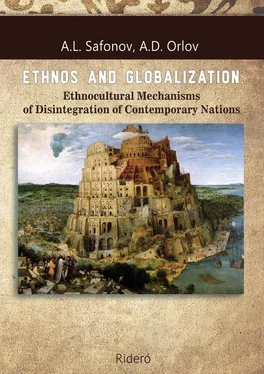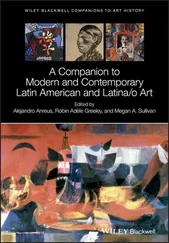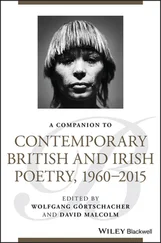1 ...6 7 8 10 11 12 ...30 Another form of local outsiders’ appeal for mercy aimed at the leaders of global development is the idea of the preservation of civilizational (cultural) diversity, clearly repeating the slogan urging the “preservation of the biodiversity” of the environment. Preservation of the biodiversity is nothing short of a strategy to maintain the physical being of the ethnocultural community at the price of the loss of historical agency and transformation from an agent into an object of guardianship, the transformation of a local community into a guarded biological entity.
Nevertheless, the status of a guarded object has become a relatively successful solution for the trap of globalization for many primitive ethnic groups (aboriginal peoples, few in number, with a traditional economy).
Overall, when globalization is pressuring local social communities and groups, two types of reaction manifest themselves: a short circuit – an establishment of a guardian-like collective consciousness, the transformation of local communities into diasporas; and the urge for local and regional communities politically shaped into states to enter globalization on their own terms, as advantageous as possible.
A third option is available – a creation of one’s own global project – but that route requires plenty of resources and is unequivocally available only to China.
In any case, in criticizing, or rejecting, globalization in its Western, expansionist variant, one should recognize that the problem and relevant challenges will not go away, as the causes of globalization – globalization of the economy, the transformation of local social communities into open systems, the opening of spatial and information barriers, the growing crisis of resources and demographics – do objectively exist and increase.
Therefore, the majority of well-known theories and concepts of globalization are based on the reduction of globalization as an all-encompassing phenomenon into separate, albeit essential, phenomena of an economic or political nature.
Contemporary Russian studies of globalization focus on several theoretical approaches that inadvertently reflect the power dynamics in Russia and around it.
The neoliberal approach to the processes of globalization that has been largely accepted as the official concept of the reformation and development of Russia reflects the views of contemporary Russian elites, whose interests are to a great extent tied to the resource-based economic cycle and global economic structure.
It is essentially a matter of the local adaptation of such classics of neoliberalism as Hayek 128 128 Law, Legislation and Liberty, 3 vols. – London and Chicago: University of Chicago Press, 1973—1979.
, Friedman 129 129 Milton Friedman Capitalism and Freedom. The University of Chicago Press,1962
and Popper. 130 130 Popper, K. The Open Society and its Enemies. M., Feniks, Mezhdunarodny fond “Kulturnaya Initsiativa”, 1992. – 448 p.
Correspondingly, negative consequences of the total liberalization of spheres of human being are presented as objectively inevitable and, as a result, as ungovernable phenomena without any alternative, such that an attempt to control them may result in an even worse outcome.
In general, liberal approaches to globalization as an extreme version of economic determinism are characterized by denial of the systemic complexity of social development that, in principle, cannot be reduced to phenomena and patterns of an economic and material kind.
Therefore, the neoliberal concept of globalization that has been taken up by the elites and which presents a condensed expression of their interests, takes on the character of an objective historical factor. Chubais and Popov are typical and influential representatives of neoliberal philosophy and ideology that are also part of the Russian elite.
On the whole, neoliberalism is interesting not so much as a theoretical model of a descriptive type, but rather as a prescriptive theory, which, put into practice in economic policies, is a typical manifestation of globalization.
In particular, neoliberalism, when thought of as a phenomenon of collective consciousness, can be considered a direct result of local elites separating themselves from local communities, a vertical fragmentation and a crisis of post-industrialism nations, as will be discussed below.
Considerable scientific results have been achieved within the socio-ecological approach that looks at globalization from the point of view of a global ecological, resource and demographic crisis. It should be noted that the socio-ecological approach has, since the very beginning, been controlled by representatives of global elites in the face of the Club of Rome and further international organizations and scientific communities.
By manipulating global threats, supporters of the concepts of sustainable development and zero growth motivate states and corresponding social communities to step back from choosing their own developmental path. They promote the creation of supranational institutions of global political power that member states cannot control or see through, using objective necessity to justify the lowering of the life standard and social guarantees for most of the world’s population, even the “inevitable’ decrease in the Earth’s population.
However, the term “sustainable development’ allows us to see clearly the interests of global financial elites behind it, lobbying for the maintenance of and increase in inequality of the global nucleus and the global periphery, to solve global contradictions at the expense of economic and political outsiders of the global community. Notably, Mikhail Gorbachev became a well-known supporter and promoter of global sustainable development, publishing several compilatory works under his name. 131 131 Gorbachyov, M. S. My Manifesto Land. St. Petersburg: Питер, 2008. – 160 p.
Nevertheless, Russia’s groundwork in basic natural science could not but result in scientific achievements, important not only in a practical sense but in terms of general philosophy. The most notable in this regard is concept of physical economy and a number of works on globalistics and system analysis of global development by some members of the Russian science community. Geophysicist and climatologist Kondratyev and his associates 132 132 Kondratyev, K. Y., Krapivin, V. F., Savinykh, V. P. Perspectives of Civilization Development: Multidimensional Analysis. M.: Logos, 2003. – 576 p.
should be noted among the latest, as well as the works by Fedotov 133 133 Fedotov, А. P. Globalistics: Origins of the Science of the Contemporary World: Lectures. M.: Aspekt-p Press, 2002. – 224 p.
and Subetto, 134 134 Subetto, A. I. Capitalocracy and Global Imperialism. St. Petersburg: Asterion, 2009. – 572 p.
developing the noospheric approach.
The crisis of the formational approach resulted in a wave of interest in the civilizational approach. The first post-revolutionary reprint of Danilevsky’s 135 135 Danilevsky, N. Y. Russia and Europe. M.: Kniga, 1991. – 573 p.
Russia and Europe became a landmark moment for the rehabilitation of the civilizational approach.
The publication of the works of Leo Gumilev, which may not have solved but at least presented clearly the problem of ethnogenesis and the correlation between ethnographic and nation state in the historical process, became an important source of renewed interest in civilizational issues and the overcoming of economic determinism.
However, interest in the civilizational approach sprang mainly from the reality of globalization, namely the crisis of the classic nation state of the industrial epoch and a flare-up of crisis processes of an ethnocultural kind – above all, processes of ethnic and religious fragmentation of civil nations and invigoration of ethnicism, ethno-separatism and clericalism that filled the institutional vacuum born from the crisis of social institutions in the industrial epoch.
Читать дальше












